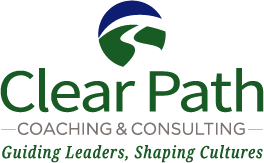Personal accountability is taking ownership for ALL the outcomes of your behaviors, actions, and decisions – both positive and negative.
Sounds simple, right? Yet what causes so many of us to avoid personal accountability like the plague? In my opinion, there are three primary reasons why we shy away from personal accountability.
Three Reasons Why People Shy Away from Personal Accountability
The first two center around what causes us to avoid accountability when we encounter negative outcomes:
- We’re unaware or in denial that we’re responsible for something. This is often the case when expectations or roles aren’t clearly defined and aligned to each other.
- It’s easier to blame someone or something else or make excuses and justify why we didn’t deliver or achieve something. We often do this to protect ourselves from feeling bad about what we did or to protect our own sense of self-superiority – where we believe we are always right and never make mistakes.
The last one is when we avoid accountability when we encounter positive outcomes:
- We are uncomfortable taking credit for things we’ve done and believe we need to give credit to others to keep them motivated or to keep a sense of fairness, peace, and harmony within the team or organization.
Benefits of Taking Personal Accountability
Aside from the obvious fact that it’s what great leaders do and it is critical to achieving success, there are several other benefits of taking personal accountability.
Greater Clarity on Your Goals and How To Achieve Them. When you take accountability, you can’t help but get really clear about what you want and what you need to do to get there.
Fewer Conflicts and Increased Trust and Respect. When you take accountability for your actions and/or decisions vs. blaming others, you’re much less likely to encounter conflict with others and much more likely to earn their trust and respect.
Helps You Measure Progress and Become More Resilient. If you’re taking accountability, you’re able to see the progress you’re making and learn from what isn’t effective as well as create new ways of doing things so you can be more effective. The process of consistently measuring progress and finding new ways of doing things ultimately makes you more resilient – and did you know that the stronger your resiliency, the more likely you are to have a positive sense of well-being and be fulfilled in your life.
Greater Ability to Grow, See Possibilities, and Find Solutions. Only when you admit and deeply understand which of your own actions and decisions didn’t serve you, or others, will you be able to learn from and build upon it.
Increased Self-Confidence. When you take credit for your own positive outcomes and can see what you’ve learned and how far you’ve come, you will inevitably feel more confident in your abilities.
How To Develop An Improved Sense of Personal Accountability
Get Clear on What Success Looks Like. The first step to becoming personally accountable is to know what you should be accountable for. Be clear on what success looks like and what you need to do to achieve it. This might mean sitting down with your boss and getting a deeper understanding of your role; or, it might mean creating a vision and strategy for where you want to take your team, function, or company.
Accept And Own Your Decisions and Actions. Instead of expecting to always be right or protecting yourself from being wrong, shift your mindset to a place where you accept and almost expect that you will make mistakes. Everyone makes mistakes, we can’t know everything, change is always happening, and uncertainty surrounds us – get used to it and focus on learning from it. The learning you get will be exponential.
Relentlessly Pursue Solutions. When something goes wrong, don’t ask “whose fault is it?” This just fuels the blame game and inspires closemindedness, which causes learning and progress to cease. Instead, focus your time and energy on creating solutions rather than blaming or pointing fingers. Focus on resolving the issue(s) by analyzing the situation, assessing possible solutions, and taking action.
Stay Strong, Down To Earth And Get Comfortable Apologizing. A person with a sense of accountability is always swift to apologize, face the issue head-on, and is far from being arrogant and/or egocentric. Many people believe that apologizing is a sign of weakness, but that couldn’t be further from the truth. Apologizing is a sign of strength and self-awareness, which is an attribute of personal accountability – not a weakness.
Always Leave Room For Improvement. As human beings, we are imperfect and there is always room for improvement. Don’t ever place yourself above others; instead, be someone others can trust and learn from. Consistently reflect and analyze past experiences, observe shortcomings and share them with others – let the future bring endless opportunities for you and everyone around you.
Final Word
Taking personal accountability is a way of being. It’s something you consciously chose to do day in and day out. It’s not easy and it will hurt at times, but I guarantee you, its benefits will make you and all those around you better versions of yourselves.
If you’d like to talk more about the topic, please email me at: tracy@clearpathcoachingco.com – I’d love to hear from you!


